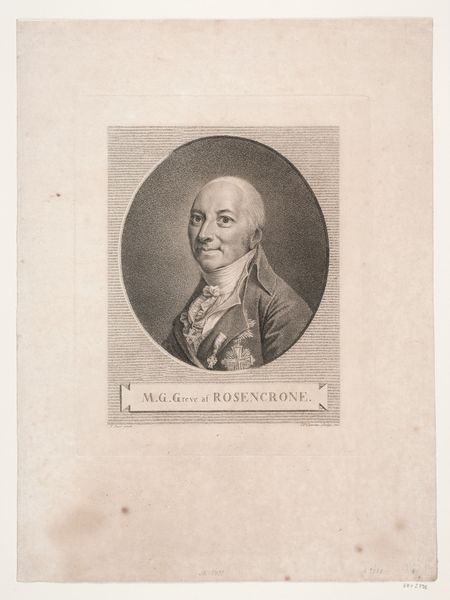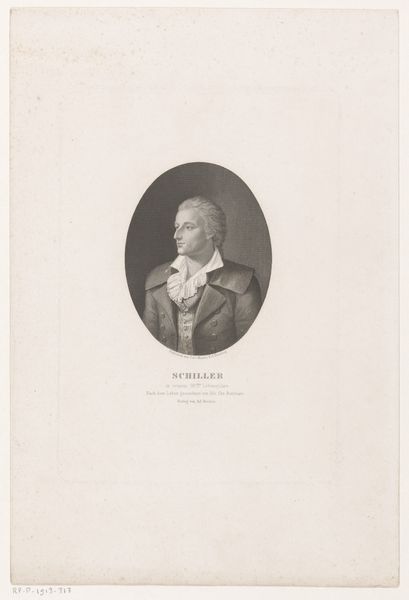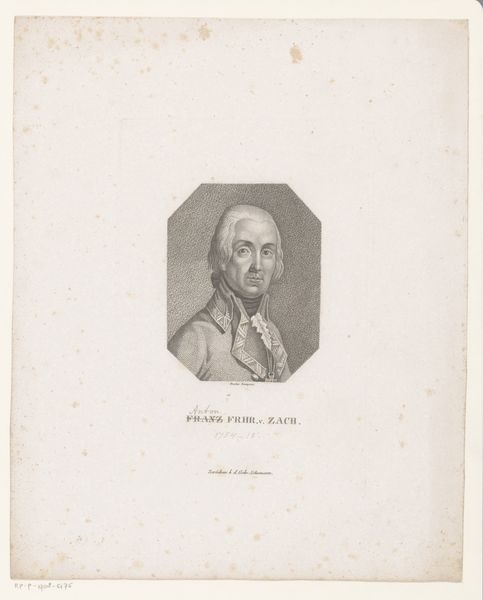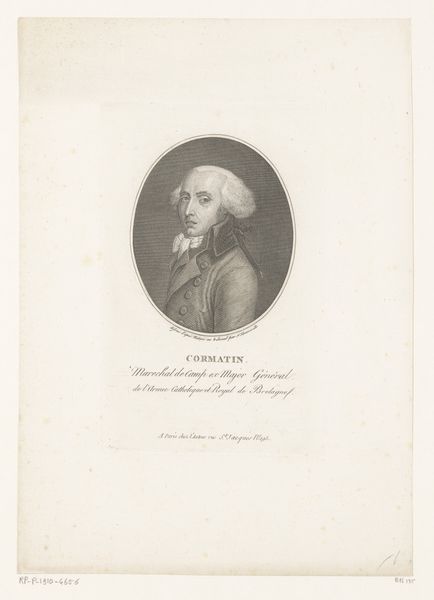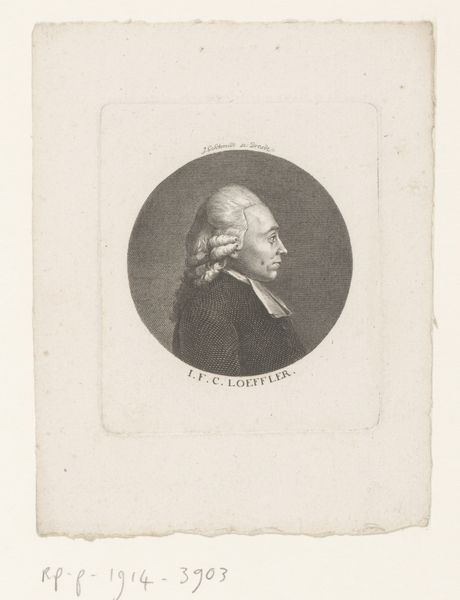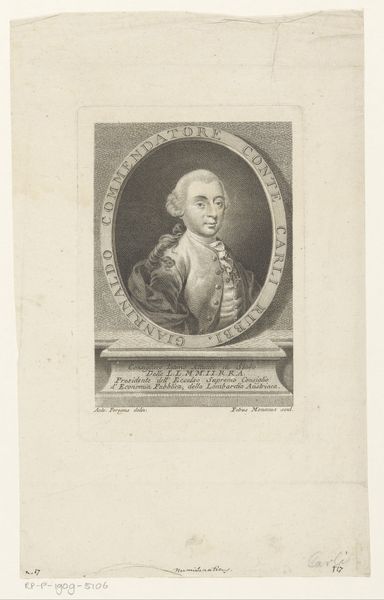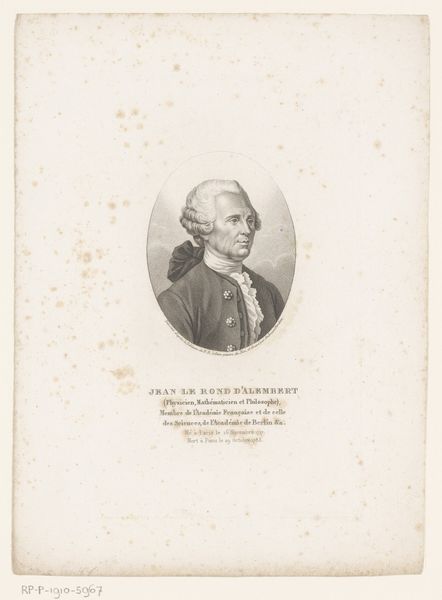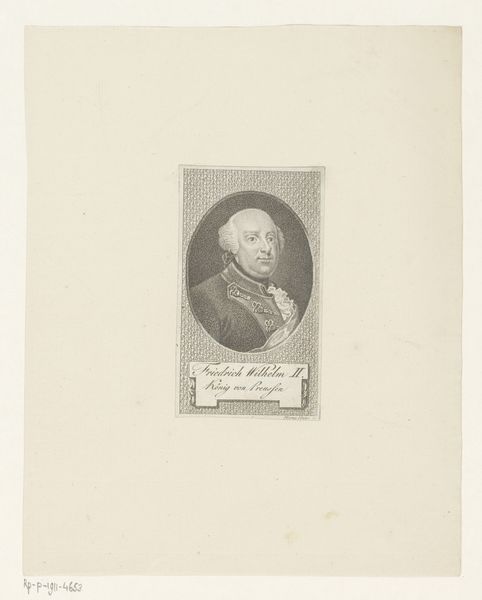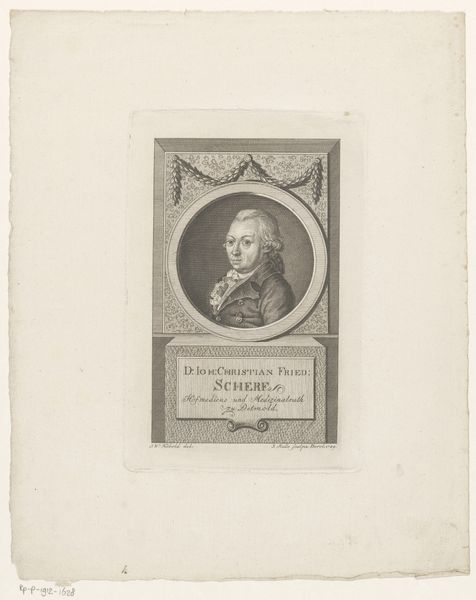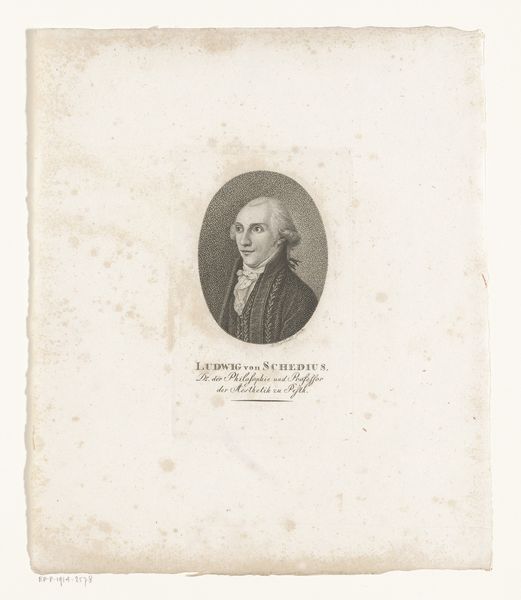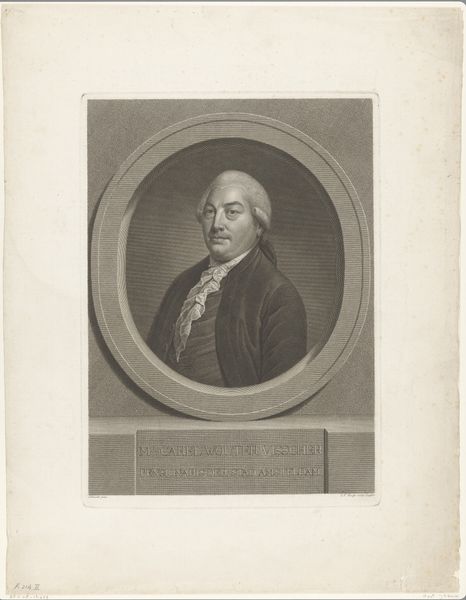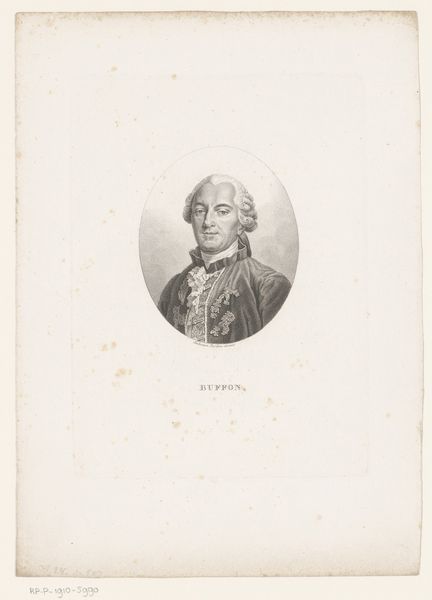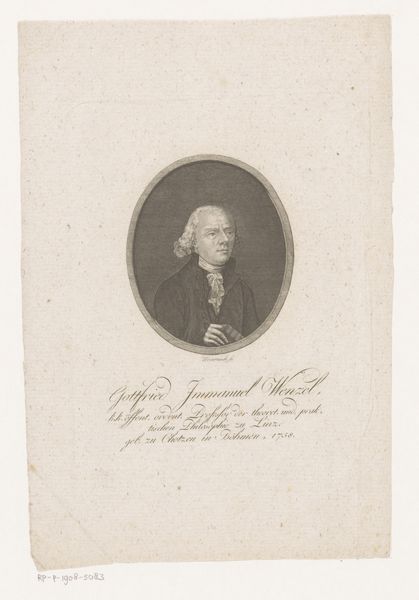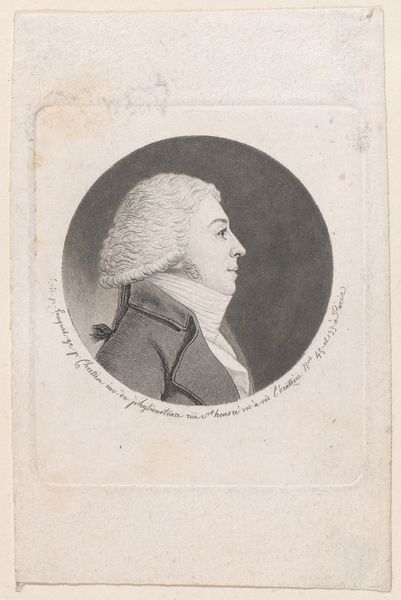
print, engraving
#
portrait
#
neoclacissism
# print
#
old engraving style
#
history-painting
#
engraving
Dimensions: height 187 mm, width 125 mm
Copyright: Rijks Museum: Open Domain
Editor: This is a portrait of Frederik August I, King of Saxony, by Friedrich Rossmässler, dating from 1806 to 1858. It’s an engraving. It feels very formal and a little stiff, the king staring straight ahead. What kind of impact was the artist likely hoping to achieve with this style of presentation? Curator: Consider the visual language. The oval frame, the neoclassical style, the King's attire; it all speaks to power, authority, and a connection to a glorious past. This wasn't just about capturing a likeness. The artist intended to imbue the King with particular virtues by tapping into pre-existing, universally recognized symbols. Do you notice any elements that evoke power specifically? Editor: Well, his military dress, definitely. And the sharp, clean lines of the engraving make him seem very resolute. I suppose those epaulettes carry quite a weight in terms of rank. Curator: Exactly. Uniforms and titles are all crucial elements. In an age grappling with revolution and changing social orders, imagery like this reinforces established hierarchies. But look closely at the *way* he's presented. There’s an echo of Roman emperors. This connection helps legitimize his rule, grounding it in a historical narrative of strength and stability. This image participates in actively *constructing* what it means to be royal. Editor: So it's not just a picture, but also an argument? It aims to remind the viewer of Saxony's strength? Curator: Precisely. It uses culturally embedded symbols and forms to cement an idea in the viewer's mind. How powerful that such simple engraving has so much symbolic work. Editor: I never thought about portraiture carrying that kind of symbolic weight. That certainly alters my view of portraits such as this one!
Comments
No comments
Be the first to comment and join the conversation on the ultimate creative platform.
